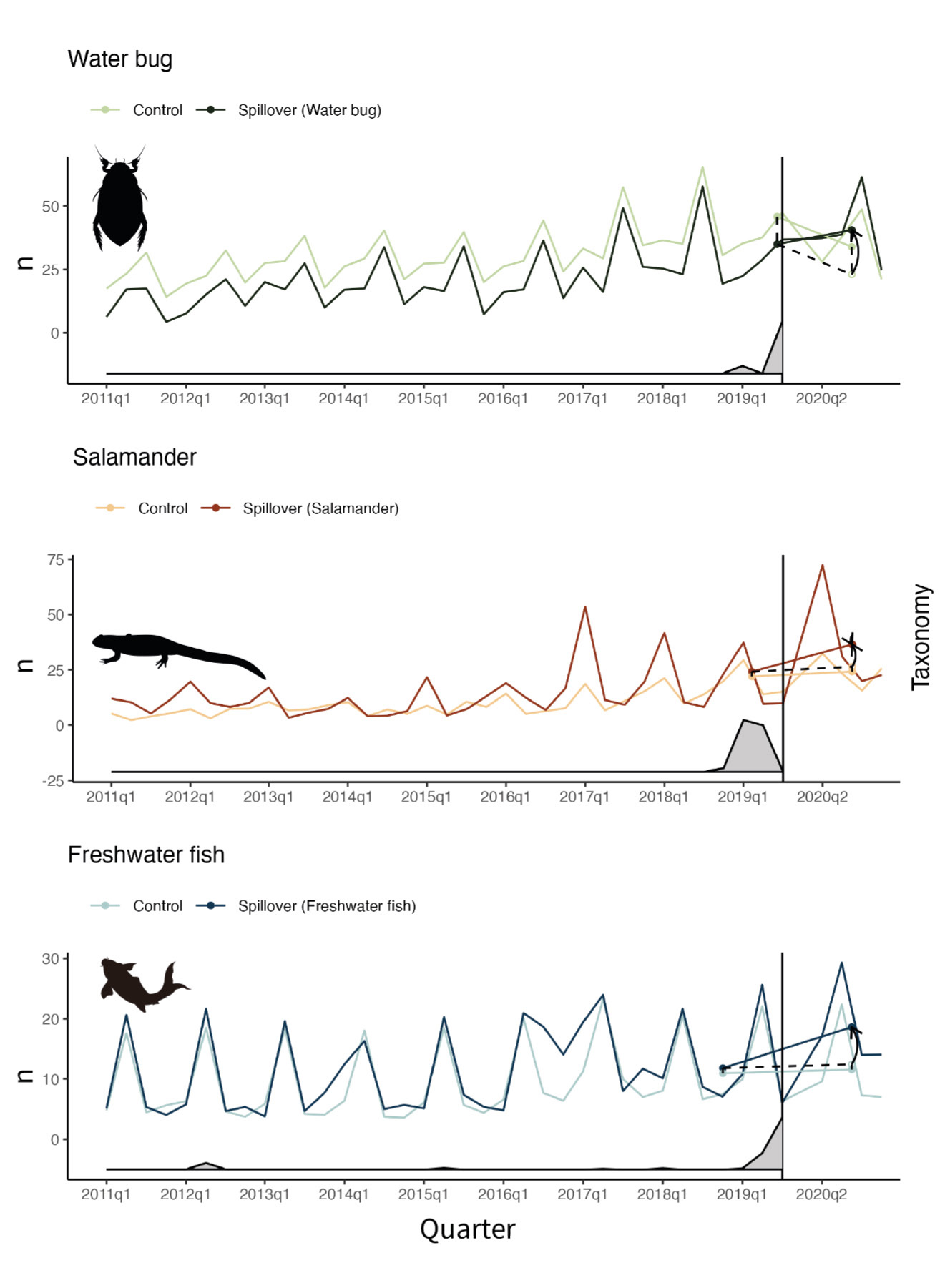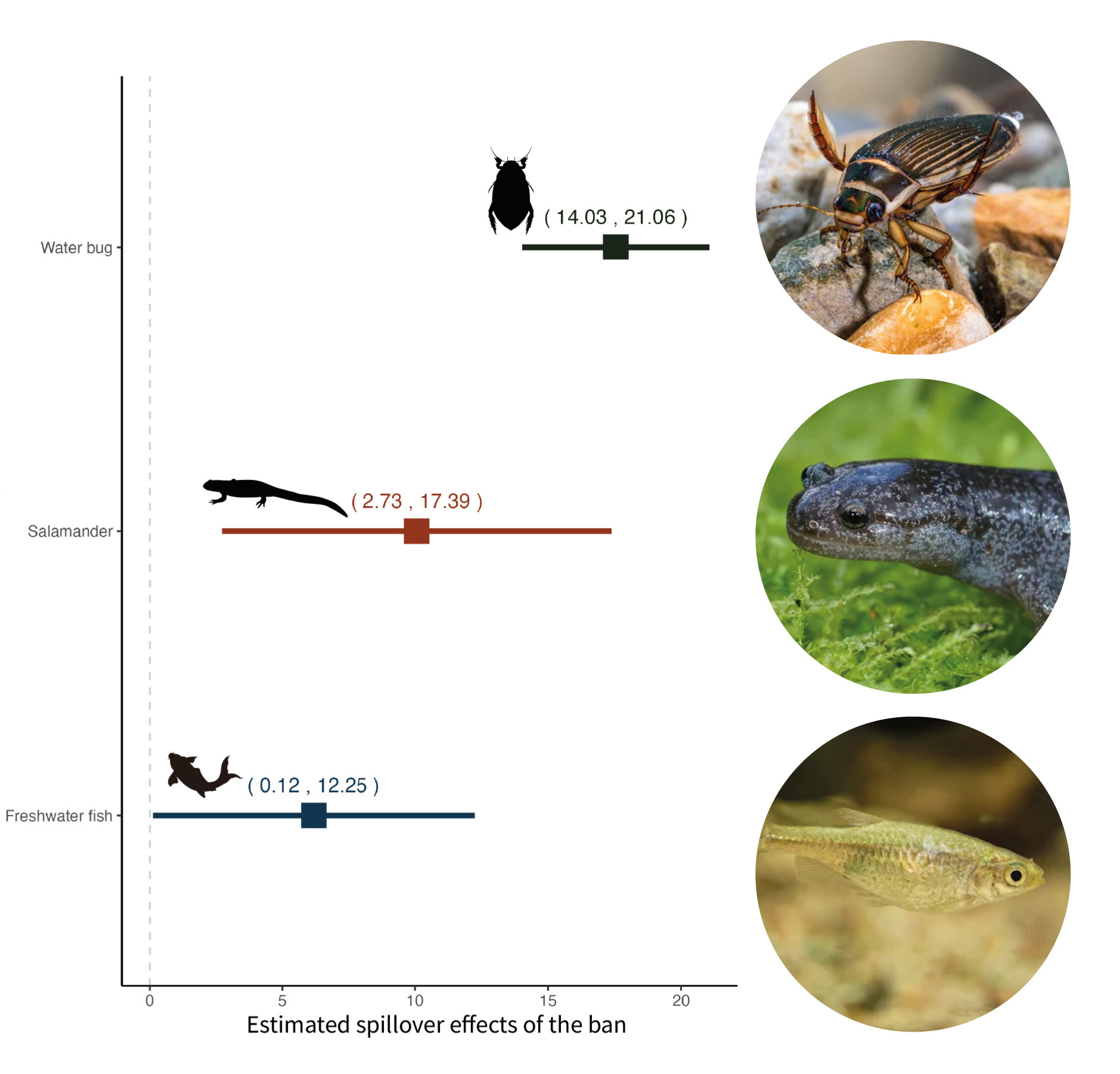News
Oxford-led paper exploring impacts of wildlife trade bans wins Unjournal research prize
A recent paper led by WildCRU Research Associate Takahiro Kubo, with Diogo Verissimo and co-authors has come first in The Unjournal’s “Impactful Research Prizes”. Entitled “Banning wildlife trade can boost demand”, the work provides evidence that trade bans on some threatened species may increase demand for other non-banned species. With reference to ten years of online Japanese trade data for three species (giant water bugs, Tokyo salamanders and golden venus chub), the authors explored whether the regulations created unintended ‘spillover’ impacts on substitutable species. Their results did indeed show this effect, highlighting the need for consumer research, monitoring and enforcement beyond regulated species. They also introduced the potential for minimising costs by applying machine learning technologies and emphasise the importance of international cooperation. Given that trade bans are among the most commonly-used strategies to address illegal wildlife trade, the paper’s results are hugely policy relevant.
The Unjournal judges said the work stood out for its intriguing question, potential for policy impact, and methodological strength. They also applauded the authors’ “open, active, and detailed engagement” with the evaluation process.
The Unjournal, established in 2022, commissions experts to provide public, journal-independent feedback and evaluation on research papers. The organisation focuses on work that is highly relevant to global priorities – especially in economics, social science, and impact evaluation. In 2024, The Unjournal will commission the evaluation of 70 high-profile and high-impact research papers and projects.
Prize winners will be honoured at The Unjournal Prize Inaugural Workshop, to be held in early 2024, where their papers will be presented. This will be part of a broader discussion on the impact of social science research, its robustness and credibility, and how journal-independent research evaluation can best promote these goals.
To learn more about The Unjournal, see unjournal.org.







